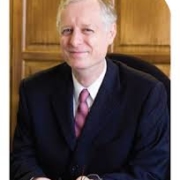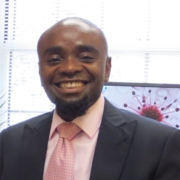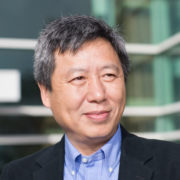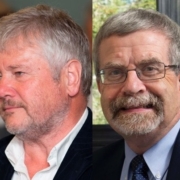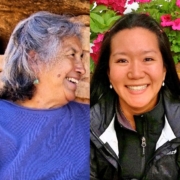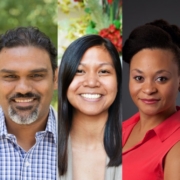Elizabeth Sumida Huaman & Nathan D. Martin
Indigenous Research Methodologies
How can we think of indigenous knowledge systems as a paradigm for research methodology? With me are Elizabeth Sumida Huaman and Nathan Martin to discuss their new co-edited volume entitled Indigenous Knowledge Systems and Research Methodologies: Local Solutions and Global Opportunities. Navigating the interplay of multiple knowledges and research paradigms can be extremely beneficial.
Elizabeth Sumida Huaman is an associate professor of comparative and international development Education in the college of Education and Human development at the University of Minnesota, Twin Cities. Nathan D. Martin is an Associate Professor of Justice and Social Inquiry in the School of Social Transformation at Arizona State University.
Citation: Huaman, Elizabeth Sumida & Martin, Nathan D., interview with Will Brehm, FreshEd, 221, podcast audio, November 16, 2020. https://freshedpodcast.com/sumida-huaman-martin/
Will Brehm 1:02
Elizabeth Sumida Huaman and Nathan Martin, welcome to FreshEd.
Elizabeth Sumida Huaman 1:06
Thank you, Will. We appreciate you making space for us this morning.
Nathan Martin 1:12
It’s great to be here, Will. Thank you.
Will Brehm 1:13
So, today, I want to talk about your new book, which looks a lot at indigenous knowledge systems and research methodologies in particular. And so, in the book, you say that not all research by indigenous people is indigenous research. And not all research on indigenous communities is indigenous research. So, it made me wonder, you know, how would we even begin to define what indigenous research is?
Elizabeth Sumida Huaman 1:39
So, thank you, Will. I think that’s a really great question. When we refer to indigenous research, and we’re referring to a particular methodology here. So, what Nathan and I have been trying to do is to add the array of research worldviews. And so, in the way that researchers might think of feminist methodologies, queer methodologies, transformative methodologies, you know, social constructivist approaches to research. What we’re trying to do is to create a space that has actually been carved out over the last two decades or so by senior indigenous scholars and community members working together in indigenous communities to establish what we now understand to be a field of indigenous research methodologies. So, this is a worldview for how we think about the significance of research, how we think about the significance of the questions that we’re asking, how we understand the way in which we want to approach the research design. So, there’s some very technical aspects to it. But I think what’s really critical to acknowledge is that indigenous research methodologies have always been around. So, we’re talking about indigenous knowledge systems for millennia that had to ask questions in order to be able to live and thrive in their environments, as well as to adapt to different kinds of changes. Whether human-made changes, whether environmental, natural world shifts. So, we’re talking about indigenous methodologies as being rooted in very old indigenous knowledge systems and cosmologies. And when we say that not all research that is conducted by indigenous researchers is indigenous research, nor is all research that is conducted with indigenous communities indigenous research, what we mean by that, and we’re really referring to the giants upon whose shoulders we stand. So, we’re referring to the scholars like Cora Weber-Pillwax, and Linda Smith, Graham Smith, numerous other scholars who we name in the book and whose work we draw from. We’re talking about research that is, in many ways, attempting to understand the condition of coloniality. So, when we talk about coloniality, we’re utilizing a Latin American theoretical framework that comes from really intellectual partnerships between Latin American scholars and indigenous community members, as well as indigenous Latin American scholars. And I’m thinking very specifically of Anibal Quijano, Walter Mignolo, as well as others who have written about this notion of what it is that we are all a part of right now. So, when we talk about what it is that we are all a part of, indigenous and non-indigenous, they are referring to this framework of coloniality that occupies four domains, and Mignolo and Madina Tlostanova refer to this as “the colonial matrix of power,” and these four domains are characterized by: a struggle over economy, which includes addressing land exploitation, labor exploitation; struggle over institutions, these can be legal structures, militarization, structures of authority essentially; struggles over knowledge and subjectivity, which is really our area of interest is how knowledge is defined, how it is regulated, how it is controlled, how it is produced, who decides what gets transmitted; and then the fourth domain is a struggle over normativity. So, even the idea of what constitutes a normative life and what constitutes a family or a sociocultural identity. So, in many ways, indigenous research methodologies situated in a context of coloniality are attempting to understand what it is that has been done to us and how we participate in the system. That’s one aspect of it. But on the other aspect of it, you know, what we’re referring to as well with indigenous research methodologies is this idea that we are also engaged in decolonial efforts. And decolonial not to be confused with “decolonizing.” So, decolonizing is a very specific, political, economic process, but we’re talking about decolonial ways of being and thinking and understanding the world, and much of our knowledge and our framework comes from indigenous scholars who practice and live this, like Aymara scholar, sociologist, Silvia Rivera Cusicanqui, as well as and I mentioned her earlier Cora Weber-Pillwax. You know, people who talk about you can have these decolonizing ideas, but you also have to have a decolonizing practice. Similarly, we can have notions of what is decolonial, meaning how do we think differently in this time than what has been handed to us by the colonizer. But we also have to have a decolonial practice. And we believe that indigenous research is decolonial practice. And you’ll also get a number of lots of indigenous and non-indigenous scholars who, for decades, have talked about indigenous research methodologies as rooted in indigenous self-determination. So, this notion of how do people and what do people decide for their lives? How do they want to live their lives, as well as linked with indigenous self-development? So, self-determination linked with self-development meaning how do they make these decisions? And what do they want to do over time? And so indigenous research methodologies have some very strong foundations in these approaches to really understanding where we are and also where we want to be?
Will Brehm 7:47
Are there differences between taking a decolonial lens and perspectives and practice and indigenous research? Or are they synonymous in many ways?
Nathan Martin 7:58
I think issue that we’re trying to convey in the book is that this distinction between methods and methodology, I think, is a key theme that resonates through the different contributions. And a goal of the volume, again, is to kind of assert indigenous methodology is a important paradigm more broadly that we should take seriously, that has its history, is coherent, is potentially powerful, rooted in these clear principles, like emphasizing healing, mobilization, social transformation, as well. So, it’s going to also kind of share a lot of emphasis with various, kind of, critical paradigms. So, decolonial theory and theorizing more broadly, there’s going to be a lot of overlap, they’re going to draw inspiration from one another. But I think the focus, as Eli mentioned, on self-determination of being paramount is a distinguishing feature. So, I must qualify that I’m very much aspiring to be an ally in this debate. I’m very happy to listen and support, but I’m not, by any way, like a leading voice in this topic. So, I’ll pass this on to my colleague who is.
Elizabeth Sumida Huaman 9:23
Nathan, you’re very kind. I think one aspect that we’re attempting to convey, and this is the reason why the organization of the book is as it is, and we have all of these different sections where we’ve really attempted to highlight some conversations that our author colleagues have been involved in for a very long time. And that isn’t to say that each section confines those themes or topics, but rather the ways in which, as a whole, those themes come together. Because one of the critical aspects, if we want to dive a little bit deeper. So, we can go very deep into coloniality, we can go very deep into decoloniality, we can think critically about the relationship between how we understand decolonization and indigenous research, the academy, and the knowledge production, as well as the knowledge economy. And we can also go very deep into indigenous self-determination and self-development. And if I were to take that aspect of indigenous self-determination and self-development, and this is something that Nathan and I came together on very clearly, and I think really worked harmoniously together on this in agreement, is that when we think about indigenous self-development and self-determination, what we’re also looking at is what do communities need in order to sustain themselves? And communities need scientists, they need educators, today they need attorneys, they need a number -they need artists, they need poets, they need writers, right? Communities need all kinds of people. And what we’re really referring to then is this notion that we mentioned in the book of a holistic approach to community development and ecological planning, in which humans engage all of the different aspects and identities that they could be, that they want to be, that the communities need and desire. So, how does indigenous research, research design, as well as the methodologies that inform that design -how do those things help us to move towards these comprehensive, holistic community designs that we so need. If we’re going to talk about indigenous nationhood, or if we’re going to talk about collectivities and ideas of community, self-sustaining, self-sufficient, autonomous communities need those people. And so, what are the ways in which those people approach research and think about their work in relation to the whole?
Will Brehm 12:02
So, how do they do it? I mean, given the book brings together so many different voices, young and established researchers all together in one edited collection. So, what are some of the different approaches that some of these scholars have pioneered or utilized in some actual research that might be considered indigenous research?
Elizabeth Sumida Huaman 12:22
One of the things that I think is reflects the richness of the volume in the way that Nathan expresses himself. You know, he expresses himself with a lot of humility to say, I am not an Indigenous person, but I have spent time with Indigenous students in communities over the last eight years or so, nine years, and I’m interested in these kinds of issues, and when invited, I have something to say. And our students, as well as the authors in the book, all of the contributors, are from indigenous communities or work very closely and extensively with indigenous communities for forever. I think the richness of what they bring is never to say, look what we’re doing, you know, let’s take Sweeney Windchief’s chapter, for example, he is an Assiniboine, Lakota scholar from Montana, who’s utilizing Kanaka ‘Ōiwi theories or approaches towards understanding indigenous epistemology, and how the mind, body, and spirit are connected in learning, which really individualizes learning. It places the microscope on the person and their learning process. And he’s saying, here’s what I’ve been taught by Manu Meyer, who’s Kanaka ‘Ōiwi, an amazing and brilliant scholar. And here are the questions that it provoked me to consider in my own homelands and looking at my own cultural practices, and my own understanding of what is knowledge, what is knowing, and what is understanding. So, I think that’s the richness is, these connectivities that all of the authors are saying, what is it that is being done in other places from which I can take inspiration, questions, examples, and what are the ways in which I then can turn around and with that same kind of humility that I think Nathan embodies -what are the ways in which I can then turn around and very humbly ask additional questions. And I think that that’s one of the perhaps pillars of indigenous research is the role and the positionality of the researcher, the ways in which the researcher acknowledges sources of knowledge and inspiration, and the value systems that researchers hold, which in one of our chapters, Porter Swentzell, who is Tewa from Santa Clara Pueblo talks about researcher values, and really how does all of that comprehensively come together when we think about what is it that our communities need, and what is our place in asking those kinds of questions?
Will Brehm 15:03
So, Nathan, I want to bring you in here. You know, it would be great to hear your experience and your thoughts on, I guess what Elizabeth is beginning to talk about here is the interplay of knowledges, right? And how there’s different knowledge systems that people move through, and particularly those educated, in particular ways outside of indigenous communities, and then going and learning from indigenous communities and working with people who are indigenous researchers. I’d be interested to know, how have you managed this sort of interplay of knowledges and, how do you find the value, and how do you balance your own research work that from my understanding, you know, you’re a sociologist of education, and you do a lot of work with quantitative data. So, how does this all fit in with … what have you learned, in a sense, from indigenous research methodologies?
Nathan Martin 15:53
I think, as I become more acquainted with this way of thinking, this body of work, it’s helped clarify concerns I’ve had that are more longstanding with how to engage in social research but avoid the pitfalls of a positivist thinking and orientations. Even if you’re trying to adopt like a posture or theoretical framework that is very critical of these established and normal scientific kind of ways of evaluating evidence and drawing conclusions. We’re still left with many of the same tools to understand the social world that were developed at the same time. That these were tools to justify eugenics are still being used to understand the landscape of social inequality in hope of developing policy or intervention to address it or redress. So, I found how thoughtful indigenous methodologies and like the pioneering work in this area are about this distinction between methods and methodologies very helpful. To my own thinking more broadly about, well, how can I engage in social scientific practice but not kind of just serve to kind of reproduce this very hard distinction between the researcher and subject. Or make sure we empower communities through our work. That it’s very much public-oriented in both its outcome and its implementation. And I think, the thing about how to do that with quantitative work has lessons more broadly for methods training generally. So, a recent book by Chris Andersen and Maggie Walter, titled Indigenous Statistics, I found like really helpful and thinking about how to bridge like what I knew from my training, which is rather conventional, rather traditional sociological methods training, to the kind of work I wanted to do that can play a role in a broader project of social transformation and community empowerment. And I think making very explicit how no matter what methods you’re choosing, one’s personal standpoint, the theoretical frameworks that one uses are still going to play an important role. Even if kind of the sins of quantitative research may be more evident. So, the essentializing capacity, the fact that it makes people either visible or invisible, like the counting through these projects, like the census not only just provides a surface count, how many people, but literally determines who counts, who’s deserving of a full personhood in the eyes of the state. And this goes back centuries from their inextricable statistics were designed as instruments of state power from their inception. So, to think about, what can they still be useful? Of course, I think it’s also kind of dispelling myths that indigenous methodologies anti-empirical No, it’s how these pieces of evidence and information are used and why that’s more important. So, it helps. Thinking about this as an individual researcher makes me be more thoughtful and reflective in the kinds of questions I will ask. And like a lot of the inspiration I got is from students. I mean, they, Eli and I mentioned like our work with Indigenous students -they have more experience on the topic than anything I could provide in a seminar. I mean, they already know the important parts. They want to make a difference and engage in this research enterprise but in a way that’s not contradictory to the important value systems that they come to the field of research with.
Will Brehm 20:14
You know, it’s really interesting that you bring up students because obviously, one of the things that you mentioned in your book is how there is a bit of a struggle teaching indigenous research methodologies inside American universities. And I would imagine the same is true in some of the universities here in the UK. You know, so are courses in indigenous research methodologies, or at least you know, is indigenous research methods and methodologies even mentioned in typical methods courses, in university in America, in PhD courses in America? Is this common, or is this like this new area that still hasn’t been adopted by many courses?
Elizabeth Sumida Huaman 20:58
So, I think that’s a great question regarding what actually exists, what actually is available to students now, what kinds of resources in terms of coursework, professional training, as well as resources. You know, material resources are available to students to put into practice whatever they might be learning. So, I think there’s lots of different ways in which tertiary indigenous institutions have been engaged in these kinds of questions and have been looking at -and perhaps they’re not calling them indigenous research methodologies. They may not be calling them that. You know, so we want to be really clear that we’re not trying to capitalize on a term here that then turns into something that’s limiting. You know, this idea that it’s “owned,” or that the concept in any way can be controlled, or that it should be regulated by somebody. The only bodies that probably should regulate knowledge transmission, sharing, and exchange that takes place in indigenous research are between the researchers, and the communities, and their participants. But you know, in terms of we’re not trying to coin anything new here. So, we would like to acknowledge that there are tertiary indigenous education institutions, probably as well as indigenous schools, where there are teachers from communities who speak their languages, who are working with students on lots of different modes of inquiry, and really thinking about what are the ways in which we can ask questions that relate somehow to the well-being of our people. So, again, they may not be calling that indigenous research methodologies or methods, but they have some approach and probably some languaged way of conceptualizing what it is that they’re doing. Now, when we talk about mainstream institutions, which I think speaks more to your question, indigenous research methodologies are not considered a dominant paradigm or one of the dominant paradigms. And I think that’s probably for a number of different reasons. You know, we tend to have in mainstream universities, across mainstream communities, the idea of compartmentalizing lots of different populations. So, this notion that if you are doing indigenous research, or whatever you call indigenous research methodologies, that means that’s only for indigenous people and they’re over there somewhere. You know, some distant place, or some foreign place, or some esoteric, or mystical, or exotic population that you’re working with. Or that you’re engaged in mystical, esoteric, and exotic questions, you know. And I think that we give a lot of acknowledgement to scholars like Sonya Atalay, who is an Ojibwe archaeologist, who really asks critical questions regarding how indigenous research methodologies transcend indigenous community boundaries and what are the ways in which they can be taken up in lots of different places. And I think what we’re asking for is self-representation and visibility. That indigenous research challenges researchers and communities, the so-called researched, to really rethink the power dynamics that are involved in what it means to conduct research. So, to actually do research and create research design, and then to think about the purposes and what you do with it, as Nathan had mentioned. But we find that that is a struggle in universities. And in many ways, it’s also because if you have non-Indigenous instructors, there’s a discomfort with the material. And sometimes, it comes from fear of the unknown. Sometimes it comes from a fear of the possibility of misrepresenting. I have a lot of students who are non-indigenous, who are concerned with appropriation and very conscientious of that, and I think that that speaks to our time and the current generation that we’re in where people are really interested in positionality. And they’re also really interested in breaking barriers that these metanarratives have crafted in ways that have been really destructive. And our students, I think, are also really conscientious about how they exacerbate problems created under conditions of coloniality. So, I think all around, there are some sticky areas regarding how you think about the incorporation of indigenous research methodologies in university settings. But I also think that these are challenges that can be overcome by working directly with communities. Every institution in the United States is either on, or adjacent, or near Indian lands. And so, we’re talking about universities that also have an obligation to uphold, in the case of my institution, the University of Minnesota, to uphold their land-grant status and what some have referred to as “land grab” status. So, when you talk about how, or if, indigenous research methodologies could find space in classrooms, we actually have to dig much deeper. And we also have to talk about the relationship of these institutions to local indigenous communities upon whose lands they sit, as well as the ways in which those universities participate in coloniality, and how indigenous research can help them to see themselves and to interrupt those processes that have been so harmful in those areas and elsewhere.
Will Brehm 26:50
It seems like a lot of these mainstream institutions, there needs to be a new -I guess the word might be historical memory. It seems as if a lot of the memory of the American settler colonialists coming in and taking land and then building institutions, you know, that memory is in many ways gone. And in some respects, it sounds as if you’re saying, we need to re-remember that. We need to sort of engage with what that means and then use that memory to act in different ways going forward.
Elizabeth Sumida Huaman 27:22
That’s right. And there are a lot of institutions now worldwide that are acknowledging the lands, the ancestral lands, and the peoples upon which the university was really built. The people sacrifice. And so, you’ll see in a lot of email signatures, at conference functions, people will get up and they will before they even introduce themselves, they will acknowledge the space and the territories. And I think those are some really symbolic ways of acknowledging that there has been a deliberate silencing and a deliberate forgetting of what has happened in these spaces. At the same time, if lots of indigenous scholars, so certainly, we’re not the first -indigenous scholars and allies have talked about this for a while now since this became a trend. That at the same time, if it’s not married, with some sort of practice -if it’s not married, with some sort of perhaps decolonizing practice, and making space for decolonial approaches that come from indigenous peoples and communities, such as what I think we’re striving to do with indigenous research and the kinds of questions that researchers are asking. If it’s not married with some kind of practice, then what does it really mean? So, I think that indigenous research methodologies and the incorporation, the acknowledgement, the recognition, that there are instruments, there are tools, there are resources, there are worldviews, and there’s something deeper there that people can draw from in order to think about how they can actually put into effect the acknowledgments that they’ve been giving.
Nathan Martin 29:09
That really hits on, I think, some of the goals that we had for the volume of making these issues more visible, like provide a kind of a space for the potentially uncomfortable moment that you have to go through to kind of engage in this type of work. To make it both visible and then but kind of prepare yourself for the hard work to come because this is not knowledge production for knowledge sake. The hallmark of indigenous research is its role in community empowerment, and healing, and self-determination. So, I hope we’re able to play a small part in this, but it’s definitely -we have centuries of silence, so it’s not going to turn a corner immediately. But I think we see signs for optimism. At my own home institution, Arizona State, where I think we’re becoming more and more clear the debt that we owe to the those who were such great stewards of the land for so long, that provided the infrastructure necessary for a vibrant metropolitan area to grow in and develop. We saw it just in this last election. So, it didn’t get the headlines, but the three counties that comprised the Hopi tribe and Navajo nation had exceptional turnout, 89% turnout, that went something like 97% for Biden. So, that accounted a net of about 72,000 votes, where Biden’s leading the state by just 17,000. So, without the political power and will of our native communities like the election would have gone differently. But that’s not what we see in the headlines. So, this important work too long going unacknowledged and forgetting how we all benefit from this important work. I mean, not to put too fine a point on it, but the future of the earth depends on us becoming better connected to appreciate how we all fit in this space. So, there’s so much that indigenous methodology can provide the academy more broadly and just improve how we relate to one another that we hope we can start kind of a conversation and spark some thinking and motivation somewhere.
Will Brehm 31:37
Well, I can say that I, for one, will be giving my students here at the IoE some of the chapters from this book because what I loved particularly is that every chapter has these objectives and then questions at the end, and it becomes this really, really nice pedagogical tool to engage in conversations even if you might not know the context so well. And so, I just want to say thank you for producing this book, writing this book. I do actually think it’s going to be very valuable. You know, even if it’s a small piece of a much larger struggle. I want to just say thank you for writing it and producing it because I do think it’s a great resource for so many people that have to teach methods courses across universities around the world. So, Elizabeth Sumida Huaman and Nathan Martin, thank you so much for joining FreshEd. Really a pleasure to talk today.
Nathan Martin 32:28
Yeah, thank you. This has been a joyful conversation. I very much appreciated it.
Elizabeth Sumida Huaman 32:34
Thank you so much for having us, Will. And if I could just say thank you very much to our authors as well. Our contributing authors, as you noted, they crafted each chapter lovingly and thoughtfully. And each piece reflects generations of where they come from and who they are, and also reflects the aspirations, the dreams, and the hopes of their communities and the people that care about their communities.
Want to help translate this show? Please contact info@freshedpodcast.com
Related Publications
Indigenous knowledge systems and research methodologies
Indigenous innovations in higher education: Local knowledge and critical research
Mentioned Resources and Scholars
Anibal Quijano – Coloniality of power and Eurocentrism in Latin America
Walter Mignolo – Coloniality of power and de-colonial thinking
Nestor Medina – A decolonial primer
Indigenous statistics: A quantitative research methodology
Native Hawaiian epistemology: Sites of empowerment and resistance
Indigenous archaeology as decolonizing practice
Photostory and relatedness methodology: The beginning of an Aboriginal-Kanaka Maoli research journey
Related Multimedia Resources
Linda Smith and Eve Tuck: Decolonizing Methodologies
Have any useful resources related to this show? Please send them to info@freshedpodcast.com

